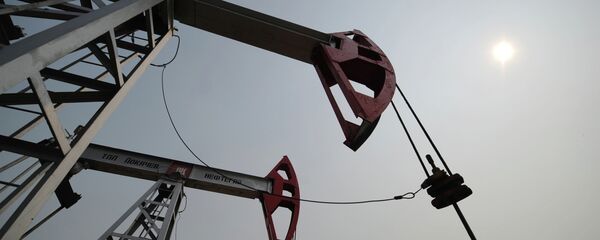WASHINGTON (Sputnik) — The Organization of the Petroleum Exporting Countries’ (OPEC) role in regulating oil prices is diminishing as advanced technologies such as hydraulic fracturing allow non-OPEC producers to develop exploitable fields faster and at a lower cost, experts told Sputnik.
Whenever new non-OPEC challengers enter the oil market, OPEC and its dominant player Saudi Arabia are trying to discourage them from participation, Johns Hopkins University Applied Economics Professor Steve Hanke told Sputnik on Tuesday.
“What they try to do is discourage challengers by occasionally letting the market price sink. And if the market price sinks, the Saudis cost is so low, that the Saudis are still making money,” Hanke said.
However, the professor pointed out that as the technology improves the cost to extracting oil is getting cheaper. “In the very long run, oil prices will ratchet down over time.”
Hanke also said in the second half of 2015, the oil prices will likely be higher than they are at present.
On Tuesday, the International Energy Agency (IEA) released its annual Medium-Term Oil Market Report and said that oil prices will hit $55 per barrel in 2015 and $73 in 2020.
The IEA noted that it expects in upcoming years that OPEC and non-OPEC producers will have “dramatically different roles” in regulating the upstream oil supply.


